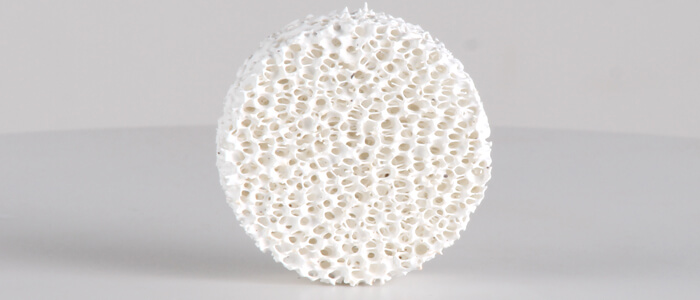In the realm of advanced materials, porous alumina stands out as a versatile and indispensable component with a myriad of applications across various industries. This unique material, characterized by its porous structure and exceptional properties, has revolutionized fields such as catalysis, filtration, and membrane technology. Let’s delve deeper into the fascinating world of porous alumina and unveil its wide-ranging capabilities and significance.
Understanding Porous Alumina
Porous alumina, derived from aluminum oxide, possesses a distinctive porous structure that allows for precise control over pore size and distribution. This feature makes it a preferred choice in industries where tailored porosity is crucial for optimal performance. The manufacturing process of porous aluminum oxide involves intricate techniques that result in a material with high-temperature resistance, robust mechanical strength, and chemical inertness.
Key Features of Porous Aluminum Oxide
- Customizable Porosity: The ability to manipulate the porosity of alumina ceramics enables fine-tuning of properties for specific applications.
- High-Temperature Resistance: Porous aluminum oxide ceramics exhibit exceptional heat resistance, making them ideal for applications in extreme thermal environments.
- Chemical Inertness: The chemical stability of porous alumina ensures compatibility with a wide range of substances, enhancing its utility in diverse industries.
- Mechanical Strength: Despite its porous nature, alumina ceramics maintain impressive mechanical strength, ensuring durability in demanding conditions.
Applications of Porous Alumina
- Catalysis: Porous aluminum oxide serves as an excellent catalyst support due to its high surface area and customizable pore structure, facilitating efficient chemical reactions in processes such as petroleum refining and environmental remediation.
- Filtration: The fine-tuned porosity of alumina ceramics enables effective filtration of liquids and gases, finding applications in water purification, air filtration, and pharmaceutical manufacturing. For example, alumina foam ceramic filters are specialized filters designed for aluminum alloy casting processes. These porous alumina ceramic filters effectively capture particles in the molten aluminum to remove impurities and enhance product quality.
- Membrane Technology: Porous aluminum oxide membranes have revolutionized separation processes by allowing selective permeation based on molecular size, paving the way for advancements in gas separation and desalination technologies.
Future Prospects and Innovations
As research and development in material science continue to evolve, the future of porous alumina holds immense promise. Innovations such as nanostructured alumina with enhanced properties and novel applications in biotechnology and energy storage are being explored, showcasing the adaptability and potential of this remarkable material.
Conclusion
In conclusion, porous alumina stands as a cornerstone in the realm of advanced materials, offering unparalleled versatility and performance across a spectrum of industries. Its unique properties, coupled with ongoing research and technological advancements, position porous aluminum oxide as a key player in driving innovation and progress in the modern industrial landscape.
Stay tuned for more insights on cutting-edge materials and their transformative impact on diverse sectors!


